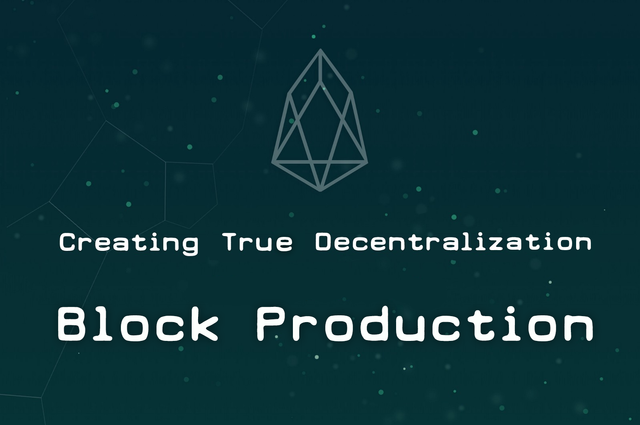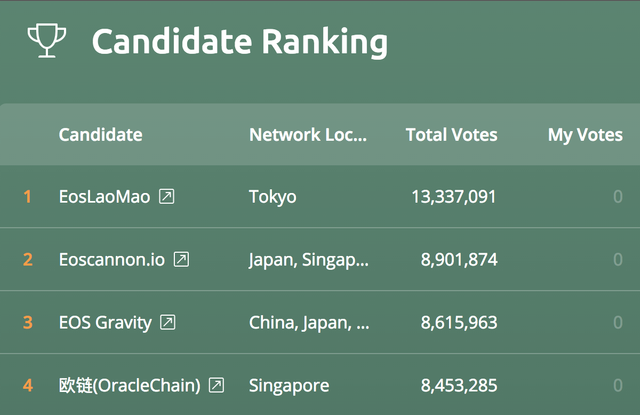Ensuring Fair Block Producer Voting
In the past week, two of the largest cryptocurrency exchanges, Huobi and Bitfinex (a lead investor in BlockOne) have announced their candidacy to become Block Producers on the EOS Blockchain. We foresee several serious concerns and intrinsic conflicts of interests with exchanges operating as Block Producers. Due to the communities concern over collusion, Evolution has begun to develop a fork of EOS focused around equality and fair token distribution.
Voting
When you deposit or hold tokens on an exchange, your tokens are put into a shared wallet that the exchange controls, along with everyone else’s tokens. This gives large exchanges, such as Huobi and Bitfinex direct control over an enormous amount of voting power. When they become block producers this exacerbates the risk that they can use these tokens to vote for themselves or worker proposals that ensure their control and profit over the blockchain.
Past instances of this attack exist in Bitshares where a leading Chinese exchange, Yunbi, used their customer’s tokens to vote on a proposal to directly benefit Yunbi’s own self interest. Coincidentally, Yunbi and it'ss owner INBlockchain are both lead investors in the BlockOne corporation which develops the EOS blockchain.
Block Producers partnering with Exchanges
BigOne, another exchange operated by INBlockchain now has its eyes set on EOS and has initiated a portal for BlockProducer voting. As BlockOne develops its approach to voting and staking tokens, full transparency is crucial to understand how INBlockchain’s owned or operated Block Producers and Exchanges will not participate in joint collusion. The core risk to the long term viability and success of EOS is the prioritization of profit over transparency.
Above, are the results from BigOne’s block producer voting held on it's Exchange. Three of INBlockchain’s candidates are shown to have the most votes. Some from the block producer candidacy have noticed missing votes.
Why not fine Exchanges?
We affirm that there is even greater risk in any proposal that would fine exchanges. This stance is due to potential reactionary responses from the exchange against it's customers. Fines against an exchange would put the staked tokens at risk due to the fact these tokens are being stored in the exchanges own wallets. The customers of these exchanges would most likely be paying parts of these fines along with the tokens having illiquidity risk due to the lockup. The very nature of any exchange is to store a customer’s tokens which inherently makes penalties a systematic risk for the community. This is the our critical concern for trying to leverage any reactionary law and we firmly believe such laws only will serve to eventually hurt the
community at-large.
Evolution’s Decision
We believe there are many independent block producers that are capable of supporting the ecosystem for the long term. There are too many overlapping concerns with exchanges operating as block producers and DApps. Since operating as a block producer will only be a secondary aspect of an exchanges overall business we do not believe they’ll give the process the focus that is required.
Block Producers are at the core of a Blockchain’s decision making process and larger corporations such as exchanges can be easily blinded by voting power at hand instead of long term community success. To ensure equal voting rights and opportunity among block producers on the Evolution blockchain we’ll be implementing proactive procedures to prevent exchanges from becoming block producers and from casting votes on behalf of a user without consent.
Enforcement
The enforcement of this policy will be through the existing arbitration process. The community is able to stake tokens to initiate a claim against participants.Looking forward to feedback from the community.
Welcome to the Evolution!
Telegram: t.me/EvolutionOS
Reddit: reddit.com/r/EvolutionOS
Twitter: twitter.com/EOSchain


I didn't know this kind of attack already happened in Bitshares. Fool me once?
I had just been wondering about the same, but wasn't aware there is already a history to it even with the same players....
Yes, some current and historical context. Great questions you brought up in your post. We read through it.
We're always talking about potential solutions over in our telegram and this was one of the proposals.
I was under the impression that EOS was going to have a staking system like Steem so that only locked up tokens could participate in voting.
I think this is true
but it is not answering the concern
when you transfer your EOS from your wallet to the exchange wallet you give them your EOS, so you can not stake them at that time while they are in the exchange account; yes they should allow you to retreive them at any time but they could still cast a big chunk of those EOS for a vote.
it is exactly what banks do, they take your money, and they use them, and you can retrieve them any time you want because they know not all people will withdraw their money at the same time, if they will attempt to do so a bank can go bankrupt (I am assuming here) or at least it will be in big trouble.
so I guess right now the only way for the EOS community to avoid this kind of problems is to not give votes to the BPs that are exchanges.
Sure, probably the policing would be community driven. People would see an exchange using deposits for voting and then vote them out, stop using them, whatever. It will be interesting to see how it plays out.
I haven't had a chance to see how evolution thinks they're going to solve the problem. Their marketing materials seem to imply that they have some whiz-bang approach to preventing collusion, but that is usually easier said than done.
Their marketing materials seem to imply that they have some whiz-bang approach to preventing collusion, but that is usually easier said than done
how they prevent it??
I think I read somewhere that they think that they can prevent it by verifying the identities of their voters, and then requiring that no account votes for more than one block producer. Or something like that.